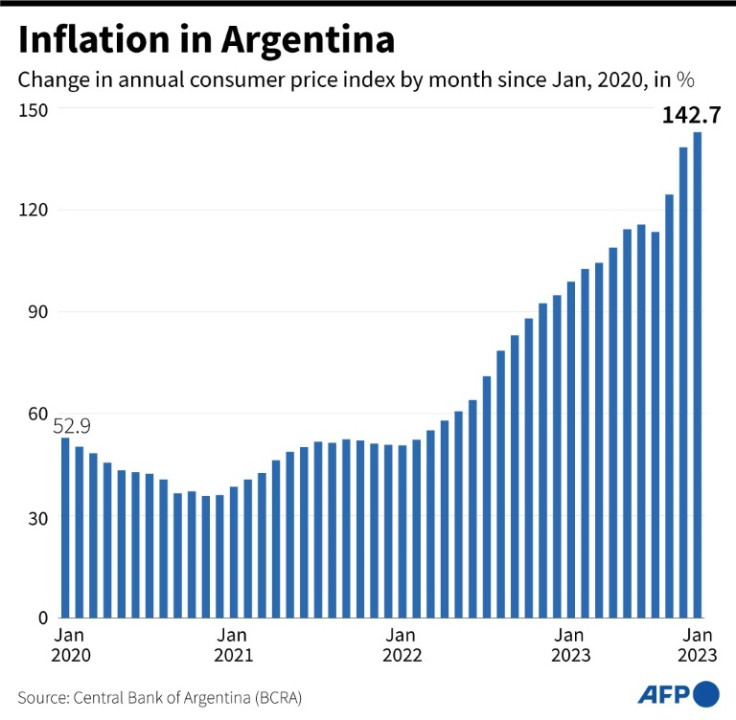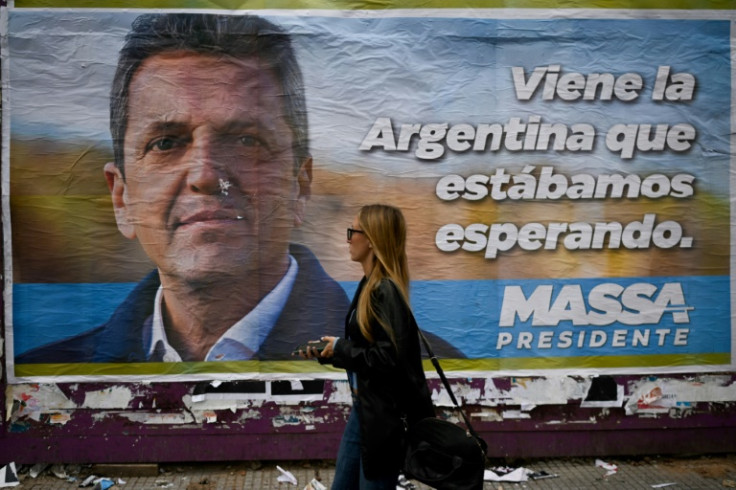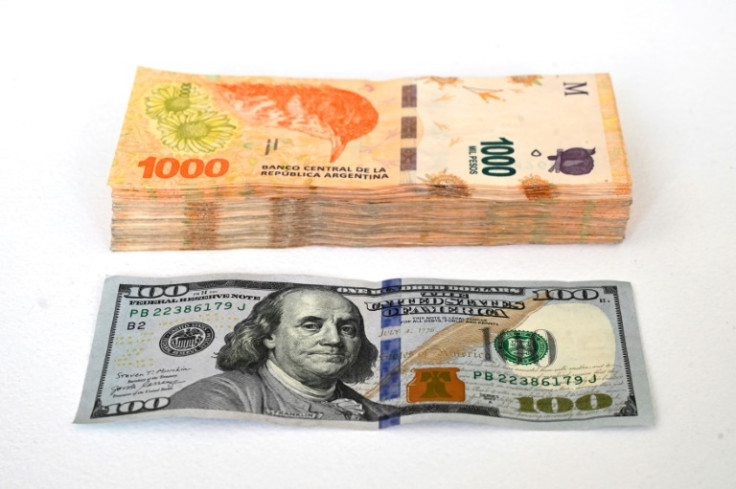Argentina Holds Cliffhanger Election With Economy At Stake

Desperate for a way out of a crippling economic crisis, Argentines will vote Sunday in a nail-biter election race between embattled Economy Minister Sergio Massa and the libertarian outsider Javier Milei.
The two men represent starkly different futures for Latin America's third-largest economy, creaking under triple-digit inflation after decades of debt, financial mismanagement and currency volatility.
Polls show the candidates in a dead heat, with Milei holding such a slight advantage that no one wants to predict an outcome.
Polling opens at 8am local time (1100GMT) and closes at 6pm (2100GMT), with results expected a few hours later.
Massa, 51, is a charismatic and seasoned politician seeking to convince Argentines to trust him despite his performance as economy minister which has seen annual inflation hit 143 percent and record poverty levels.
His rival Milei is an anti-establishment outsider, who has vowed to halt Argentina's unbridled spending, ditch the peso for the US dollar, and "dynamite" the central bank.
Argentines are "on the edge of a nervous breakdown," said political analyst Ana Iparraguirre of GBAO Strategies, describing tensions over what comes next.
Most are so disgusted with their options that "they're going to have to choose the lesser of two evils."
"Unfortunately, one has to choose one of the two," said florist Pablo Rivera, 55, who is leaning towards Milei.
Milei, a 53-year-old economist, is a political newcomer who stunned observers by surging to the front of the electoral race just months ago.
He is often compared to former US president Donald Trump and Brazil's Jair Bolsonaro, with Massa accusing him of aping the two politicians by raising the specter of electoral fraud -- for which he has provided no evidence.
Milei's rants against traditional parties who have failed to halt decades of economic decline have fired up an angry population tired of the status quo.
"What exists now doesn't work for me. Maybe this change would be good," said Milei supporter Matias Esoukourian, a 19-year-old economics student.
In a first-round election in October, Massa confounded the polls by coming first with almost 37 percent, while Milei scored about 30 percent of the vote.
Both have scrambled to shore up millions of votes from the three losing candidates.
Third-placed candidate Patricia Bullrich, from the powerful center-right opposition, has thrown her weight behind Milei.
Milei has toned down his rhetoric to appeal to her more moderate voters, imploring the public not to give in to fear stoked by Massa's campaign.
"If you are afraid you will be paralyzed and ... nothing will change. We are not going to privatize health and education, we are not going to allow the unrestricted carrying of guns," he said.
He previously said he was going to ditch those ministries entirely and was in favor of making it easier to carry guns and even sell human organs.
In recent weeks there has been no sign of the powered-up chainsaw he used to wield at rallies.
Massa represents the Peronist coalition, a populist movement heavy on state intervention and welfare programs that has dominated Argentine politics for decades.
He has sought to distance himself from the deeply unpopular outgoing President Alberto Fernandez and his Vice President Cristina Kirchner, who was last year convicted of fraud. Both have vanished from the public eye.
Massa has sought to portray himself as the calm, statesmanlike opposite of Milei.
However, analysts accuse him of abusing state resources to boost his electoral chances.
This includes using ads to warn that transport prices would increase under Milei as well as slashing income taxes for almost the whole population and granting cash payouts to millions.
Whoever wins, analysts warn Argentina is in for a tough road ahead.
Analysts say the strictly controlled peso is long overdue for a devaluation, and a lack of dollars has led to shortages in fuel, medicine, and even bananas in recent weeks.
With over $400 billion in public debt, central bank reserves in the red, and no credit line, the next government "will be digging Argentina out of an unbelievably deep hole with very few resources to do so," said Benjamin Gedan, director of the Argentina Project at the Washington-based Wilson Center.




© Copyright AFP 2024. All rights reserved.





















